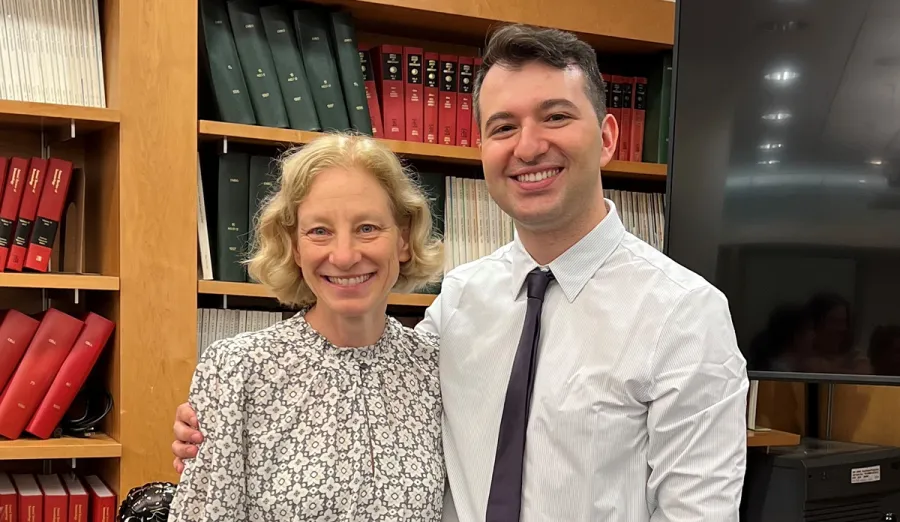
MCRI team publishes groundbreaking cardio-oncology research in Circulation.
A new study in Circulation, the nation’s leading cardiovascular research journal, from researchers at Tufts Medical Center and the Tufts University School of Medicine, identifies how blood vessel damage caused by some anti-cancer therapies may be causing heart disease risk in cancer survivors.
The study, led by Iris Jaffe, MD, PhD, Executive Director, Molecular Cardiology Research Institute (MCRI) at Tufts Medical Center and Tufts University School of Medicine MD/PhD student, Alec Stepanian, investigates why some cancer treatments dramatically increase the risk of heart attacks and strokes. It specifically compares the cardiovascular effects of two cancer drugs—ponatinib and asciminib—at levels seen in cancer patients in both preclinical models and human endothelial cells.
Researchers found that while ponatinib is effective in treating certain leukemias, it activates inflammatory pathways that damage blood vessels, trigger plaque inflammation, and can lead to serious cardiovascular events like heart attacks and strokes. In contrast, asciminib, a recently FDA-approved drug, for which sufficient follow-up is not yet available to assess cardiovascular safety, did not cause these harmful side effects in preclinical models, suggesting it may be a safer alternative for patients who are already at high risk of heart disease.
The study also identifies tumor necrosis factor (TNF) receptor signaling as a key mechanism behind ponatinib’s cardiovascular toxicity. Blocking this signaling pathway specifically in blood vessels was sufficient to successfully prevent heart attacks and strokes in mice treated with ponatinib, opening the door for future therapies that could reduce cardiac risk in cancer patients.
This work is a powerful example of how our multidisciplinary cardio-oncology research group—integrating basic scientists with clinical and translational cardiologists and oncologists —can uncover biological insights with real-world implications for patients living with both cancer and heart disease.
Iris Jaffe, MD, PhD, Executive Director of MCRI
Co-authors include additional Tufts University School of Medicine, MD/PhD students Nicole Wolter and Joshua Man, as well as Richard Travers, MD, PhD, an oncologist at Tufts Medical Center.
This study reinforces the importance of cross-disciplinary research in improving outcomes for patients at the intersection of cancer and cardiovascular care.